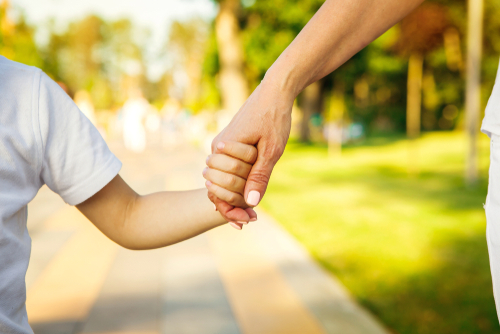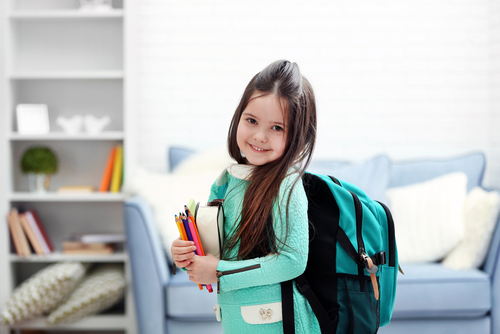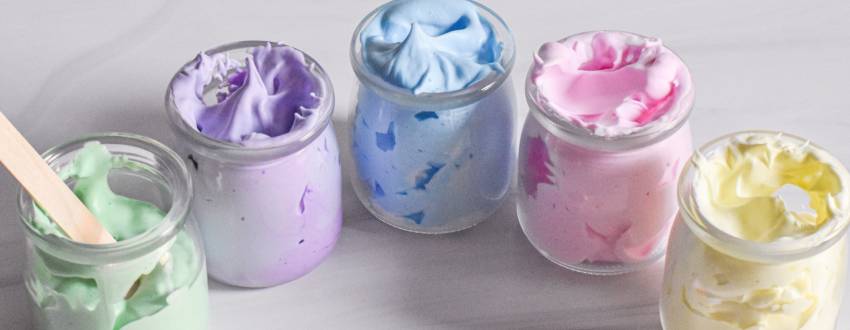By: Elisheva Blumberg, Lubicom Staff
Wondering how to help your anxiety-prone child navigate the new school year?
Countless other parents are feeling the same. Childhood anxiety, it seems, is on the rise.
“I’m seeing more children with anxious behaviors,” says Rella Roth, a SEIT (Special Education Itinerant Teacher) from Brooklyn who for 15 years has worked with preschoolers with varying levels of anxiousness.
New situations, like the beginning of the school year, can bring up feelings of distress in even the most happy-go-lucky of kids.
I spoke with Rella, who was happy to share her years of acquired knowledge about managing your child’s anxiety. The good news?
There’s lots you can do to help.
First things first: have you really seen an uptick in kids’ anxiety in the last few years?
I have. Children are exposed to problems everywhere they look. Think about it: your kid goes to the grocery store and reads the covers of the Jewish magazines, she sees stories of terrorism, infertility, abuse. They get exposed to things kids never knew about before.
If there’s only one tip you can share with parents, what would it be?
Give your child a day off.

Every once in a while, tell your child, “I’d like to spend this day with you,” Watch the 1000-watt smile light up his face. (Please don’t tell the teacher I suggested this).
You don’t need to do anything special. Your child gets to stay in PJs a little longer, linger over breakfast, finish the Playmobil fire station he’s started.
Remember, your kids are little. School is not a nine-to-five job. Sometimes they need a day off. This will pay dividends. Your child will go back to school reassured that Mommy or Totty is sending him to school because it’s good for him – not for them.
Any practical things we can do to encourage confidence in kids?
Try to be off the phone when seeing them off to school in the morning and when they return home. You can say, “You’re going to learn so many interesting things today!” or “Your Torah learning is important for the whole world,” or “Mommy is proud of what a good friend you are to others.” These words can be so encouraging to the child.
Hugs are good. And humor. You can share riddles or jokes in the morning. I know a mother who has a jar with riddles and short jokes on the breakfast table. A giggle is a great anxiety buster.
So what can we do as parents to prevent childhood anxiety?
We may need to check in with ourselves: how much anxiety or fear am I feeling now about this or that situation? Children will usually pick up what the parent is feeling. Sometimes that’s unavoidable; parents are human beings. We, too, are affected by the barrage of news – much of it negative – that we hear daily.
Another thing we can watch out for is unconsciously projecting our own school experience onto our child’s. “I wasn’t good at math, so I’m not surprised Malky is struggling,” or “It’s a family thing, we’re just not readers.”
Your child may resemble you in many ways but he deserves the chance to have his own experience in school unencumbered by his parents’ projections.
So positivity is a big part of it.

It’s important. Then again, there are days when that’s not easy. Parents can be hard on themselves. Kids can be exposed to a whole array of emotions. When the parent demonstrates his coping tools, that’s a great teachable moment for kids. “Mommy is feeling short on time, so I’m going to give you each a quick kiss and walk you out the door now.”
Kids (and adults) can learn that the entire repertoire of emotions Hashem created us with is normal. We can feel them. Learning how to regulate them is the harder part.
That’s why I have such a problem with this commonly heard phrase –
What phrase is that?
“Big boys don’t cry.” Or saying the equivalent to a girl. I hear parents saying this, and it has me concerned. If you don’t let a child cry when he is feeling pain he may think there’s something wrong with that feeling. And then how does he know how to deal with the sad feelings that inevitably arise?
So what should you tell a kid who is anxious about back-to-school?
It’s important to validate the feeling. You can say, “I see that you’re feeling a little scared. I feel scared too sometimes. Things can feel scary in the beginning.”
You might remind her that she felt that way last year, too, and how much better she felt after the first week or month of school. Drawing on previous experiences (if successfully surmounted) is encouraging. You help the child build a memory bank of the times she did the things she feared. You can help her reframe her self-image as someone who is brave.
Of course, if the anxiety persists you may need to dig a little deeper. I’ve had students as young as five or six years old have a few sessions with a therapist who taught them anxiety-coping skills. Children love to have tools that can help them with their feelings.
How can we help a child work down his anxiety, fear or anger?

One thing I use to teach my students emotional regulation is a glitter jar. You can make it at home with a water bottle filled with water and glitter glue.
First, you name the feeling. Then shake up the jar.
Tell your child “Look – all this glitter is your feeling of fear/sadness/anger. Then, breathe with the child as you watch the flecks of glitter settle; activating the breath is a proven emotional diffuser. Once all the glitter is at the bottom, she’ll be calmer too, and be able to think of some ways to cope with her feelings productively.

Wow. So even little kids can do this?
You’d be surprised at how much children want to partake in solutions. If your child does have a hard time with slow breathing, get him a bottle of bubbles. Blowing bubbles serves the same function as focused breathing does – it works to calm the mind and settle emotions.
_______________________________
Thank you, Rella, for sharing your wisdom!
It seems like teaching our kids to handle their anxiety is a growing experience for children and parents alike. Don’t forget to celebrate every small step of progress with your child…and, parents, remember to celebrate your own progress too!





